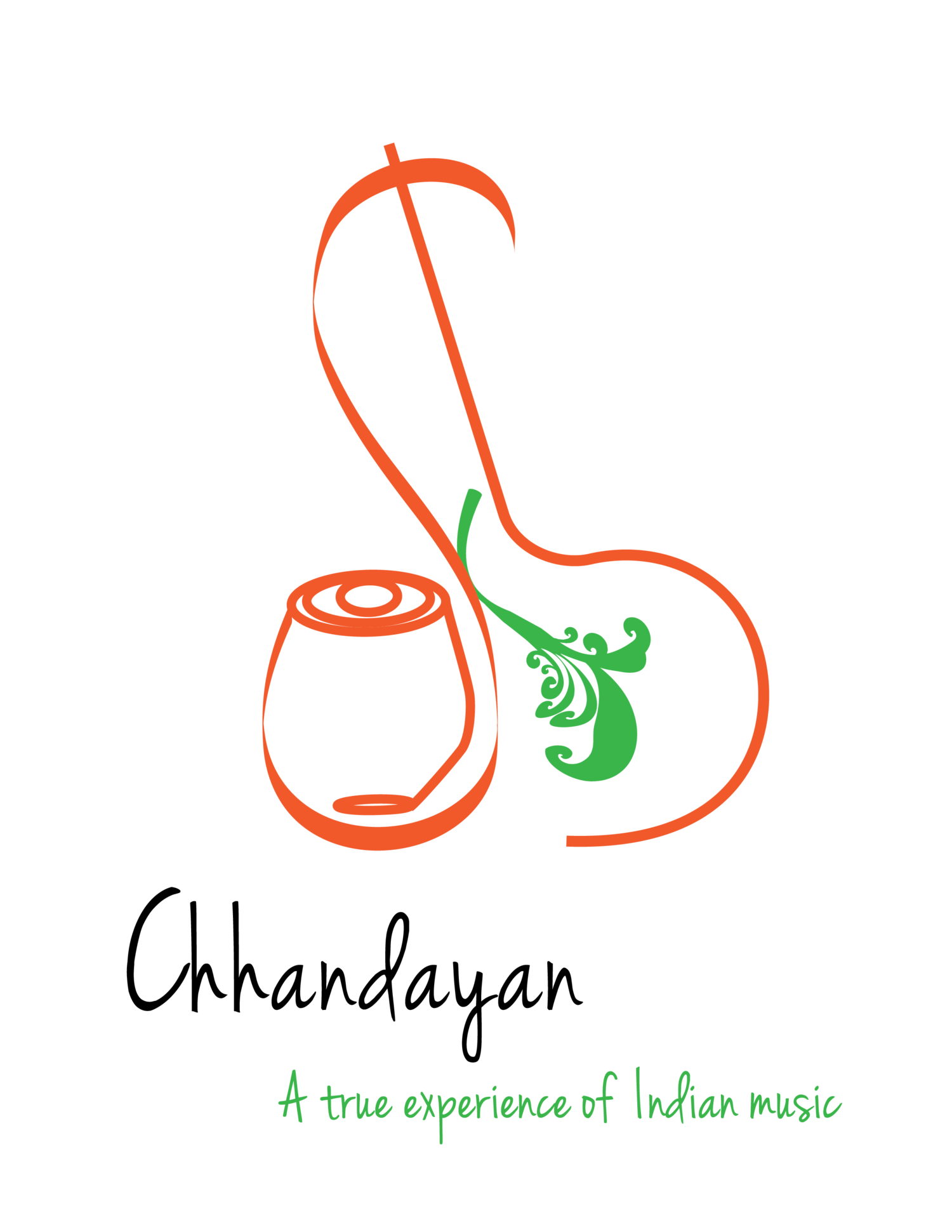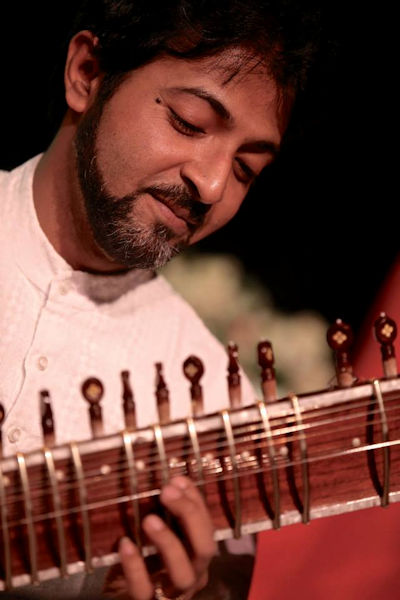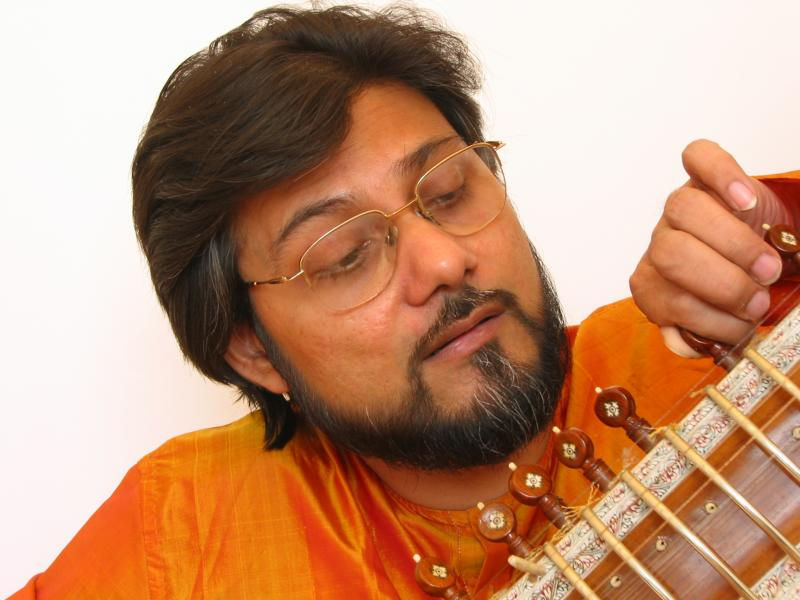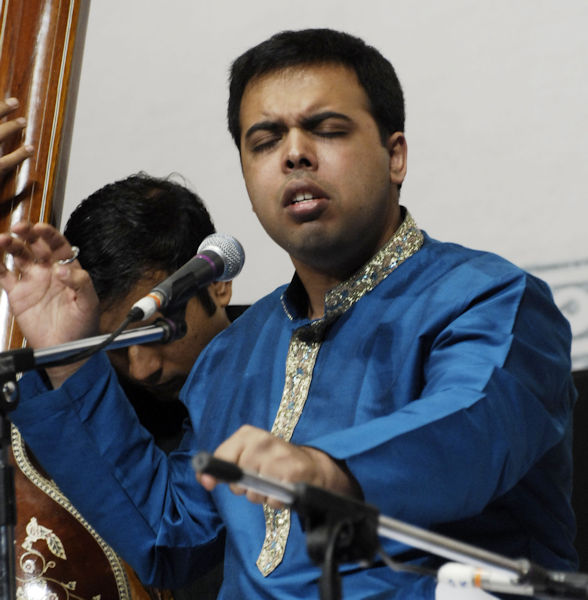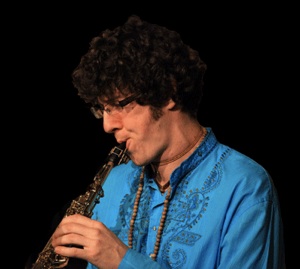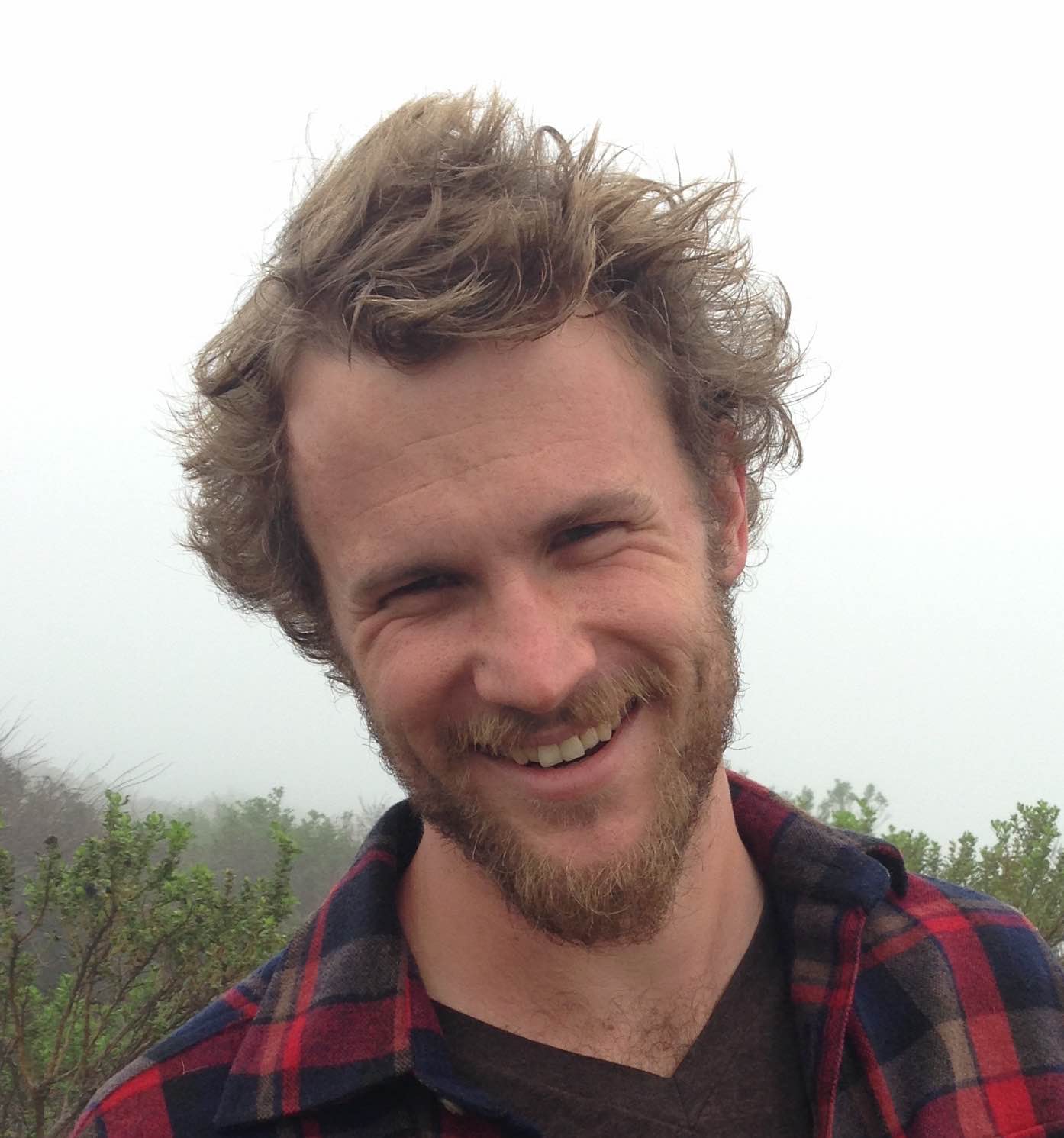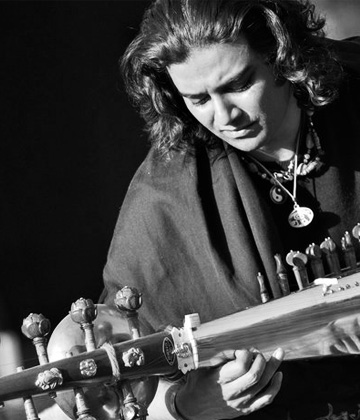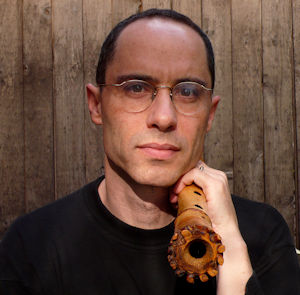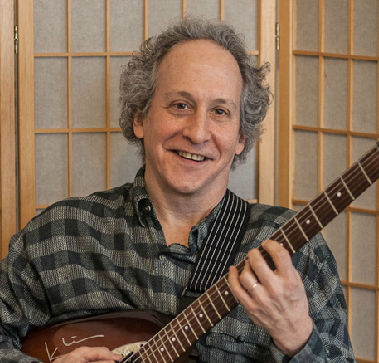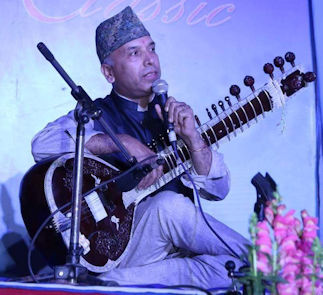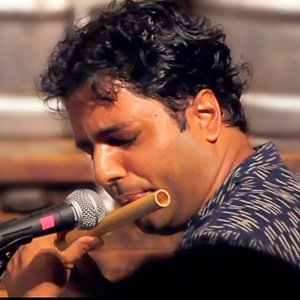Ned Rothenberg
Ned Rothenberg composes and performs on saxophones, clarinets, flute and shakuhachi (an end blown Japanese bamboo flute). He has been internationally acclaimed for his solo music which he has presented for over 30 years in hundreds of concerts throughout North and South America, Europe, Japan and Australia. He has lead the ensembles Double Band, Power Lines and Sync, his current assemblage with Jerome Harris, acoustic guitar & acoustic bass guitar and Samir Chaterjee, tabla. Current and past collaborators include Evan Parker, Marc Ribot, Sainkho Namchylak, Masahiko Sato, Samm Bennett, Kazu Uchihashi, Paul Dresher and John Zorn. He has lived and worked in New York City since 1978.
Rothenberg's musical interests are numerous and his work varies widely in its sonic, emotive and stylistic profiles. A strong underlying element of his instrumental voice is the extension of the woodwind language to incorporate polyphony and accurate microtonal organization through the manipulation of multiphonics, circular breathing, and overtone control, using his horns not only in a normal melodic role but also as rhythmic and harmonic engines in both solo and ensemble contexts. As a composer he can move from the contemporary classical setting of his Quintet for Clarinet and Strings to "Jazz-funk in cubist perspective, dizzying, yet visceral" (Jon Pareles, NY Times re Double Band) to music that is "intense, slightly melancholic, rhapsodic without being sentimental” (Edward Rothstein, NY Times referring to his solo work). His concentration on expanded sonic language is directed towards wider possibilities of musical communication, never at technical novelty as an end in itself.
Rothenberg's frequent international travels have included a 6-month residency in Japan during which he performed throughout the country and studied shakuhachi with two of the foremost masters of the instrument,Goro Yamaguchi and Katsuya Yokoyama. In the 1990s he spent 5 years touring Europe, Russia, Japan and the U.S. in duo with the spectacular Tuvan vocalist Sainkho Namchylak. More recently, he has twice been in residence in Lyon, France at the performance laboratory Les Subsistances, creating music for a performance piece about Rimbaud realized by director Lukas Hemleb, and collaborating with dancer/choreographer Wally Cardona. His most recent solo tour concentrated on performances in live acoustic environments, with concerts in churches and galleries throughout Germany, Austria and Italy and superb sonic environments like Bremen's Sendesaal, where he performed in utter darkness. These are just a few examples; international touring continues each year playing festivals, theatres and clubs as a leader or collaborator.
Rothenberg records extensively. He has 6 releases on John Zorn's TZADIK label. The latest is a solo clarinet cd, World of Odd Harmonics. Inner Diaspora features Sync along with 2 pre-eminent improvising string virtuosi, Mark Feldman and Erik Friedlander. Through the music and in his liner notes, Rothenberg responds to the complexities of his Jewish heritage. A new book of music for this group will be written for premier and recording in April, 2014. The Lumina Recordings, is a retrospective reissue of Rothenberg's solo recordings from 1981-85 with vastly improved sound and detailed documentation. Quintet for Clarinet and Strings, Ghost Stories and Ryu Nashi are all chamber music recordings on TZADIK’s Composer Series. The initial release of Rothenberg's own label, Animul, was Intervals, a 2 cd set of solo music for alto saxophone, bass clarinet, clarinet and shakuhachi. This was followed by R.U.B. with Percussionist/DJ/ Samm Bennett and guitarist Kazuhisa Uchihashi. Next came Sync's 2nd cd, Harbinger. Following was The Fell Clutch, a jam band for big-eared listeners with Tony Buck, drums, and Stomu Takeishi, fretless bass, Rothenberg and special guest, Dave Tronzo, on electric slide guitar. Also on ANIMUL is a live duo recording with Rothenberg and Evan Parker. In addition, selected recordings include:, Sync's Port of Entry (Intuition), a solo CD, The Crux (Leo), Double Band's Parting, Overlays and Real & Imagined Time(Moers Music), Amulet, the duo with Sainkho Namchylak (Leo), and a studio collaboration co-composed with Paul Dresher, Opposites Attract (New World). Also on New World is Power Lines, picked by the New York Times as one of the 10 best cds of 1995.
Born in 1956 in Boston, Rothenberg graduated from Oberlin College and studied at Oberlin Conservatory, Berklee School of Music, privately with Les Scott (saxophone & clarinet), and George Coleman (jazz improvisation). However, his trademark solo technique is self-taught. He has received grants and commissions from the New York Foundation for the Arts, New York State Arts Council, Mary Flagler Cary Trust, Lila Wallace Foundation, Chamber Music America, Asian Cultural Council, Roulette, Jerome Foundation, Meet the Composer, Japan Society and ASCAP. He has given workshops and masterclasses worldwide, at institutions including Berklee School of Music, Oberlin Conservatory, New School/Mannes School of Music, University of California, San Diego, Stanford University, Rotterdam Conservatory, Australian Institute of Music, Princeton University, University de Sao Paulo, and the Auroville International Community in Auroville, India.
